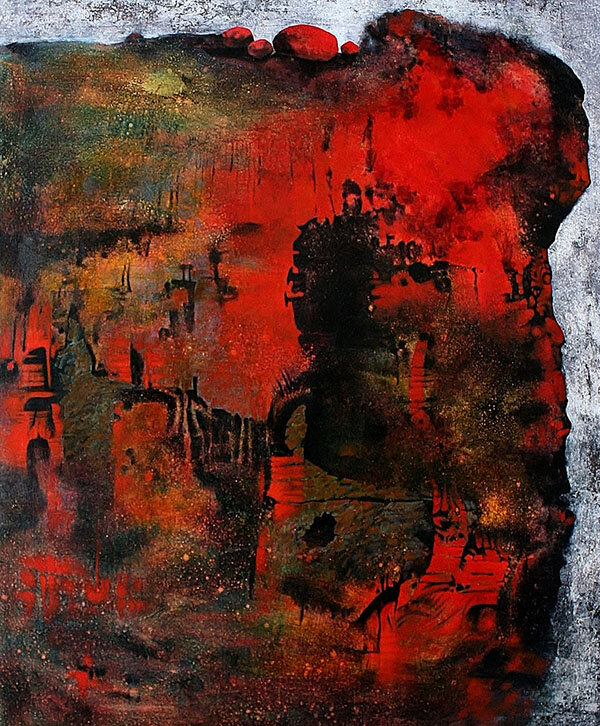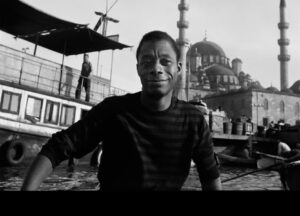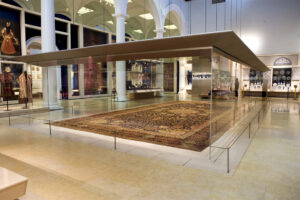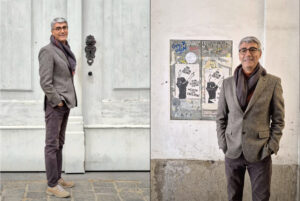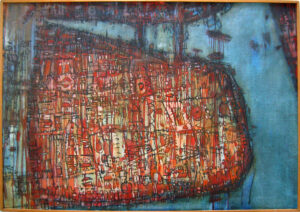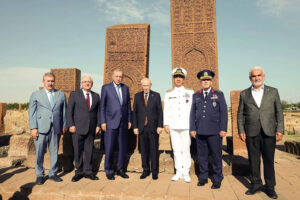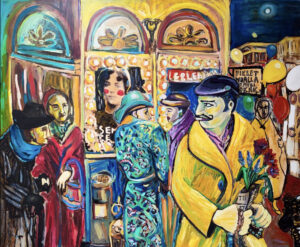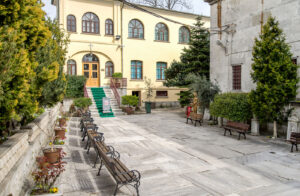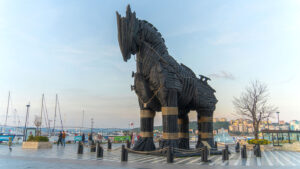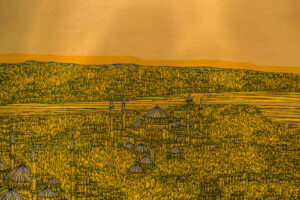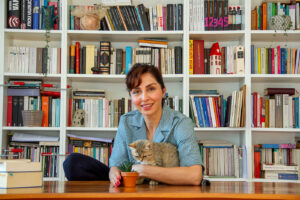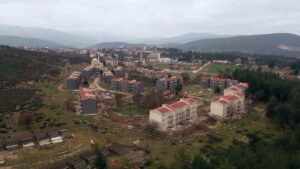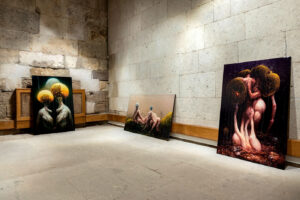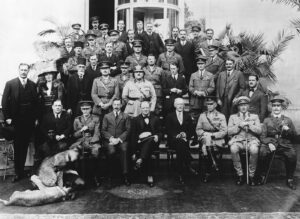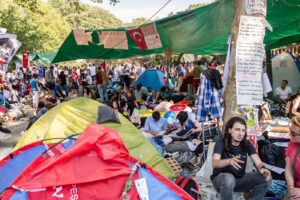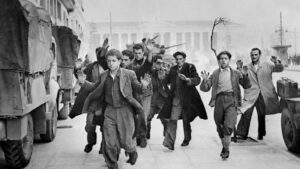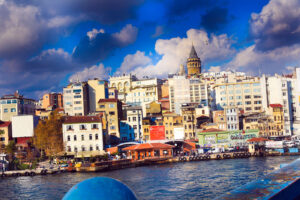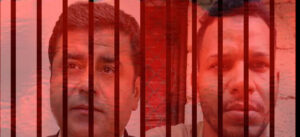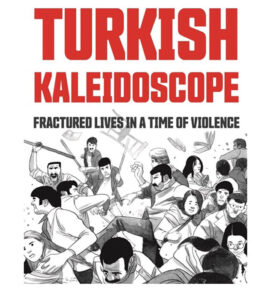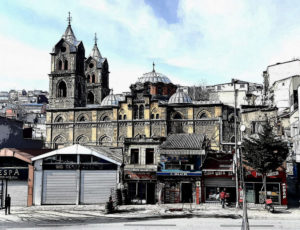Nearly 2,300 academics in Turkey and abroad have been accused of terrorism or arrested and imprisoned as a result of signing a peace petition in 2016 that demanded the Turkish government to end the ongoing persecution of Kurdish civilians. Our contributor, Kurdish poet and scholar Selîm Temo, takes us inside the continuing Academics for Peace struggle through his personal story.
Selîm Temo
I signed the “We’ll not be a party to this crime” petition published by Academics for Peace (AfP) under the shadow of a newly rising fortress inside me. It corresponded to two particular moments and impressions in my life.
The first was on the night of April 8, 1991. I was on a bus returning to my hometown Batman from Antalya in Western Turkey. On the small bus TV, I watched Western Kurds trampling each other to get the stale bread being thrown at them from trucks. The Turkish State prevented these Kurds from entering Northern Kurdistan while they were running away from Saddam’s genocide. Thousands of people were kept at the borders without any food and water. The whole world was silent. At this sight, the fortress inside me caved in. This incident eventually shaped both my personality and the way I write.
The second, a day in the Fall of 2014. I was on a “resistance watch” in Miseynter, the village across from Kobanî. The sun had not risen yet. Resembling magnolias, women walked toward the border, keeping the dawn on their left side. The barrels of Turkish tanks were facing Kobanî, ISIS was raining fire on the Kurds, and the whole world was watching the children of these women being crushed. “My god,” I said, “how alone we are!” Then the second fortress inside me caved in.
A few weeks before I signed the AfP petition, I had been called into the Counterterrorism Office of Mardin to testify. “Since I became an academic, this place has almost turned into a friend’s house,” I told myself. During one of these “visits,” some young men pretending to be American cops hovered around me. And two of them, standing right above my head, started to interrogate me. “Guys, I am here only to give you my ID information, don’t get too excited,” I said, more or less. As a matter of fact, whoever has any expectations or plans for me has always been astonished because I am truly a killjoy. I don’t know where I got this quality —from Dürrenmatt, Beckett, or who knows, maybe from Ionesco.
Here is why I was called into the Office: A writer from Sweden had sent me a package of Kurdish books and magazines in the mail as a gift whose total weight was 110 kilos. The post office sent this package to Customs. Customs sent it to Police Headquarters. The Police then sent it to the Office of the Attorney General. The Attorney General burned the whole package in the General Directorate of the National Estate’s boiler. That is, I did not even see these books and magazines. And yet they opened a case against me with a 760-page file, accusing me of “terrorist propaganda through reading the listed books and magazines.” That is: “Dear Beckett’s soul, your absurdity was fictional whereas I live in the absurd.”
When I was called into the Counterterrorism Office, this time for signing the AfP petition, I once again did not let the investigator satisfy his desires. “Where did you find the petition and sign it?” he asked. “I found it on the street,” I said. “Record my answer as such.” Then I asked him: “You looked like you couldn’t get appointed for anything else, that’s why you chose to be a policeman, young man. Where did you go to school?” He graduated from the Turkish Language and Literature Department in Erciyes University. “Instead of lecturing you, I am here to testify,” I told him.
Starting with the suicide bombers’ massacre of young socialist people from Turkey who were bringing toys to the children in Kobanî, the wave of violence had spread all over Northern Kurdistan. Barricades and trenches were built in eleven Kurdish cities. There was a horrific war between PKK’s youth branch called YPS (Civilian Protection Forces) and the Turkish State forces. In this war, countless civilians died.
The “We’ll not be a party to this crime” petition was published on January 11, 2016, which I think represented human dignity before science or anything else. All hell broke loose afterwards. During a period when only guns spoke, mouths also turned into guns. As one of my dear friends who is also an academic said, “the State forced those of us who were against the trenches to go right behind the trenches.”
Despite all the destruction I have experienced, I look at the world—as a human being and a writer–through my consciousness. A kind of consciousness that resents even the pain of those who embark on a wrong path in history. We, the Easterners (the East starts from Greece) think of consciousness almost as another human organ. Consciousness is part of the human body just as the heart, the ear, the eye, this little pinky. Of course, Yesenin’s “golden somnolent” East can also be defined as the land of those who regard blood as water. However, the tyrants in the East love their kids with affection when they go home. That’s why there is no point asking them, “How are you going to look in the eyes of your children?” The tyrant also has a consciousness, but a single-sided one. It might be better to say, “Don’t do the things that you wouldn’t do to your children.” With a single-sided consciousness, you can only be a tyrant, not a human being. And yet I said in the beginning of 2016: “Way too many people have died for me to remain a humanist who also feels pity for the tyrant.”
The cemeteries were bombed; the tranquility of those who had been long dead was disturbed; the recently deceased couldn’t be buried; farewells by those who remained alive were prevented. What the prosperous world stared at, only through its self-interest, is what we lived through. Moreover, what we experienced wasn’t anything new. Since Koçgiri in 1921, the Turkish State has been using the same technique: To blow up and destroy the accumulated tension through provocation when the Kurds prepare a collective uprising for their rights. And the Kurds have been swallowing this bait for an entire century. Only the State has benefited from this strategy and reaped the benefits of its long-term investment!
My family house neighbors the village cemetery. Here in the graves, the male members of my family whom the Turkish State executed by shooting in 1931 lie in twos and threes. I grew up looking at these graves. In 2015-16 when I was trying to write multiple books, I also had a window facing the hospital in Mardin. While some carbonized bodies were being piled up in the morgue, some other bodies were sent to the airport in sterile ambulances. Even the dead were not equals. This was an apocalypse and also the period in which the AfP petition was published and circulated. “This is a crime,” it stated, “we’ll not be a party to this crime.” A new fortress rose in me.
While being attacked or targeted, and with threats becoming increasingly common, The University of Mardin Artuklu where I worked as a professor of Kurdish and Turkish Literature joined the crackdown and formed many committees. Without even the slightest sense of shame, Kurdish academics from Batman, Siverek, Kilis, Van, Mardin, and Beşiri were fighting, almost lynching, each other to be included in these committees. Legally speaking, every committee had to have at least three members. The committee that was formed to investigate me had only two members; that is, it wasn’t even considered legal! Both members of this committee were the Assistant Deans. And both were investigated later for alleged connections with PDY (Parallel State Structure, which refers to the Gülenists who were
allied with the ruling party AKP until the attempted coup d’etat on July 15, 2016). The third assistant to the Dean Ahmet Ağırakça, (the same Dean who was called “ISIS-minded” by the well-known Islamist İhsan Eliaçık), was also dismissed as a result of PDY charges. And yet the Dean remained in his position after dismissing many academics who identified as Kurdish, democrat, secular, women, liberals, Alevi, and so on. In fact, there was already a remarkable connection between the university administrators who attacked most of the AfP petitioners and the Gülenist Organization!
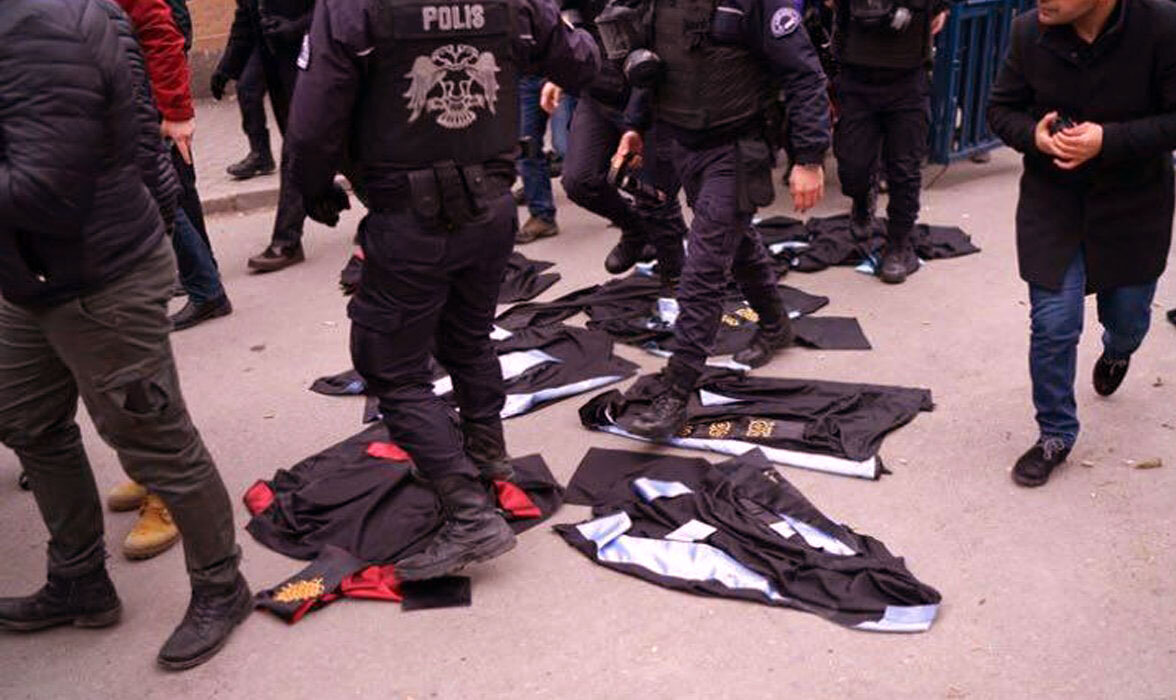
I did not allow either of the “academics” on this committee to investigate me either. I was once again a killjoy, refused to testify, and added a two-page document I prepared at home to my file that essentially criticized the petition that was put together by a group called “Academics Against Terrorism” (AAT). Referring to these committee members, I told the attendant in the room: “Mr. X, bring two application forms for the Police Academy so that these colleagues who are more inclined to be policemen can apply for it. Maybe they will get accepted. See, I didn’t say application forms for the Attorney Generalship. They are not qualified for that.” One of the “academics” said, “You are insulting us, dear colleague” to which I responded: “Why do you consider the duties of a policeman whom you cherish as an insult? If you really consider it as such, let’s settle accounts with each other.” I cannot say they have the spirit of a knight errant!There we talked more about the AAT petition that one of them signed than the AfP petition I had signed since in this particular period, the petition that had to be questioned by the committees created to defend humanity was not AfP’s, but the one that was penned against it. As I wrote previously in an article in Gazete Duvar, AAT’s petition stated that the Kurds, known as “the people of the region” by those who refuse to use the word Kurd to define us, should be put through a social rehabilitation program. Local and national Nazism, that is. And again, in this petition, they proposed to deepen the ongoing war, even declared to the State that “they were ready to participate in this war.” That is, about 5,000 academics asked to be called into military service!
On July 26, 2019 the Constitutional Court in Turkey ruled that our petition was an expression of “freedom of speech,” which must have created such panic among the ATT petitioners that a group called itself 1071 started another petition, this time against the Court’s decision. According to official Turkish history, 1071 is the year the Turks arrived in Anatolia. This is, in fact, the year the Turks arrived, not in Anatolia, but in Armenia and Kurdistan. The region called “Anatolia” was farther up in the West, but this official history has never had any accuracy or interest in being ethical. The name 1071 was also a stolen one. Once again, while the whole world watched the Turkish State attacking Afrin with the jihadists and displacing the local Kurds in order to position the jihadists in the town, a campaign to support this operation was launched by the ultra-nationalist “Turan Intellectuals” who called themselves 1071.
On the occasion of 1071, I remembered the ATT group and was curious to revisit the list of academics who signed the petition. Who were those who signed this petition and where are they now? It is a mystery! The list is gone, lost! The blogs, Twitter and Facebook accounts where this list was published and circulated are all closed, except one Facebook page—most likely, they haven’t noticed that it is still open. This page was created on the day AfP’s petition was published and their last post appeared two days later. Why did they last only two days? Simply because those who incited most hatred because of our petition were all arrested under the PDY investigation!
The Academics for Peace have been under intense pressure and attack for the past four years. Among those who have targeted them are the State, the government in power along with the structures that were its old ally, now turned to be its new enemy—that is, its own counterparts. The underground, in the meantime, is filled with the newly dead.
Translated by Öykü Tekten
Originally published on August 4, 2019 in Gazete Duvar.



